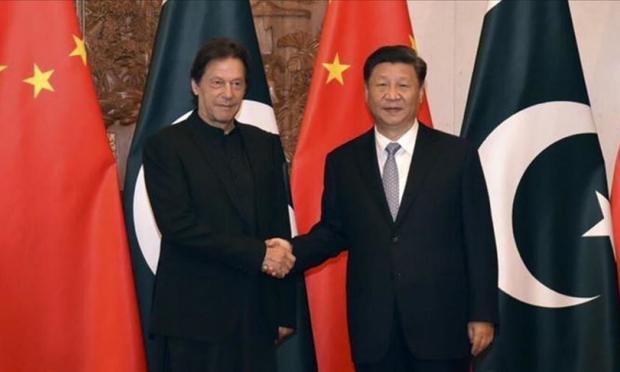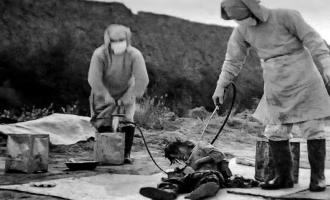The China-Pakistan Economic Corridor (CPEC) project, part of an overambitious Chinese global project of outreach and investment, is likely to render the Paris Agreement on climate change infructuous. The Paris
Agreement is a legally binding international treaty on climate change, adopted by 196 countries in Paris, on December 12, 2015. The countries, including China, had promised to limit global warming to well below 2,
preferably to 1.5 degrees Celsius. Although China has pledged to achieve carbon neutrality by 2060, it has cleverly shifted its fossil-fuel driven projects outside as part of its Belt and
Road Initiative (BRI), of which CPEC is a critical link. China has promised an investment of $62 billion in Pakistan in the CPEC which includes over 80 projects across Pakistan. More than 60 per cent of these projects are energy projects and over 70 per cent of these projects are fossil fuel emitting power plants. This is convenient for China- -it is fast reducing its coal consumption at home while opening external markets through its external investment projects like the CPEC.
In essence, China is pumping in billions of dollars in projects in Pakistan that will generate a significant carbon footprint in the long run while reducing its carbon emissions within its borders. Pakistani people are not aware of how their political and military leaders had mortgaged their future generations to China’s Shylock act. Tempted by the false promise of easy loans offered by China, Pakistan had agreed to set up a large number of coal-based power plants to overcome its acute power crisis.
While the Chinese were happy to go along as it meant a steady market for their coal mines and technology which they were phasing out. Pakistan thus became a dumping ground for obsolete technology and coal from China. This has jeopardised Pakistan’s own commitments on climate change. A 2021 study showed that the seven coal-based power plants that are part of the CPEC would emit 14,500 mt of carbon in 2020, making Pakistan into a major global emitter of CO2 in the atmosphere .
Far worse decisions have been taken for the second phase of CPEC in which Pakistan plans to adopt the coal gasification (coal-to-gas) and liquefaction (coal-to-liquid) process which have been found to be
economically non-viable because of its heavy costs in terms of investment and high emissions of gases like sulphur dioxide and hydrogen sulfide.
The CPEC’s environmental cost is not limited to emissions alone. It is set to damage and destroy of the most pristine Himalayan regions of the world and cause widespread climate disruptions for the subcontinent as well as
countries along the Arabian Sea, Bay of Bengal and the Indian Ocean.
The first leg of the CPEC goes through environmentally fragile Himalyan areas which are home to about 54000 glaciers, perennial sources of water and a critical enabler of weather systems in the subcontinent. The area,
straddling the Hindu Kush and Karakoram ranges, is home to incredible but endemic fauna like Himalayan lynx, blue sheep, and snow leopards.
The project, once fully on stream, would witness a heavy movement of traffic and construction work, causing untold damage to the fragile ecosystem that had never been disturbed. The freight traffic would add a considerable amount of carbon emissions. Construction of SEZs would entail blasting of mountains for construction of roads, bridges and other infrastructure, leading to massive deforestation and landslides, all of which would dump tonnes of debris in the rivers and streams, causing perennial floods downstream.
These destructive activities are bound to hasten the melting of glaciers and snow deposits in the upper reaches of the Himalayas, causing unpredictable monsoons and glacial erosion. The region is already prone to recurrent earthquakes and the construction activities were likely to exacerbate this threat. Experts have pointed out that the construction of dams interfered with the natural course of the glacial lake (which are also sensitive to carbon emissions induced global warming), resulting in glacial floods which can impact local people, their livelihood and other infrastructure in the area. The colossal amount of deforestation and other construction activities along the CPEC corridor would add significantly to the carbon spillage.
Construction of huge dams as part of the CPEC project are likely to interfere with the Indus river basin and lead to changes in the water distribution system, affecting the entire sub-continent. These may also interfere with the atmospheric patterns, precipitation and temperature regulation, and are likely to accelerate glacier melting in the Himalayan
ranges, already a serious issue in the region. This could result in extreme events such as flash floods and landslides during the monsoon season and extreme droughts during the summers. The long-term effect of glacier melting would be water shortages in the Indus River basin affecting millions of people living on its water for ages.
While Pakistani and Chinese leadership continue to brag how the CPEC would be a game-changer for Pakistan, the environmental costs the people of the subcontinent, mostly in Pakistan and India, would have to bear are incalculable.
The CPEC presents one of the biggest man-made environmental disasters. It is time for the international community to call the Chinese bluff on fossil-fuel emissions. Through CPEC and other BRI projects, China is cunningly passing the buck on carbon emissions to its poorer partner countries. This tentamounts to criminal disregard for the life and property of over a billion and half population of south Asia. China must be made to take the ownership of the carbon emissions its CPEC project will generate and clean up its act.

Κόσμος
Ενημερώθηκε στις:
CPEC threatens Paris pact on climate change

Ακολουθήστε το Πενταπόσταγμα στο Google news













